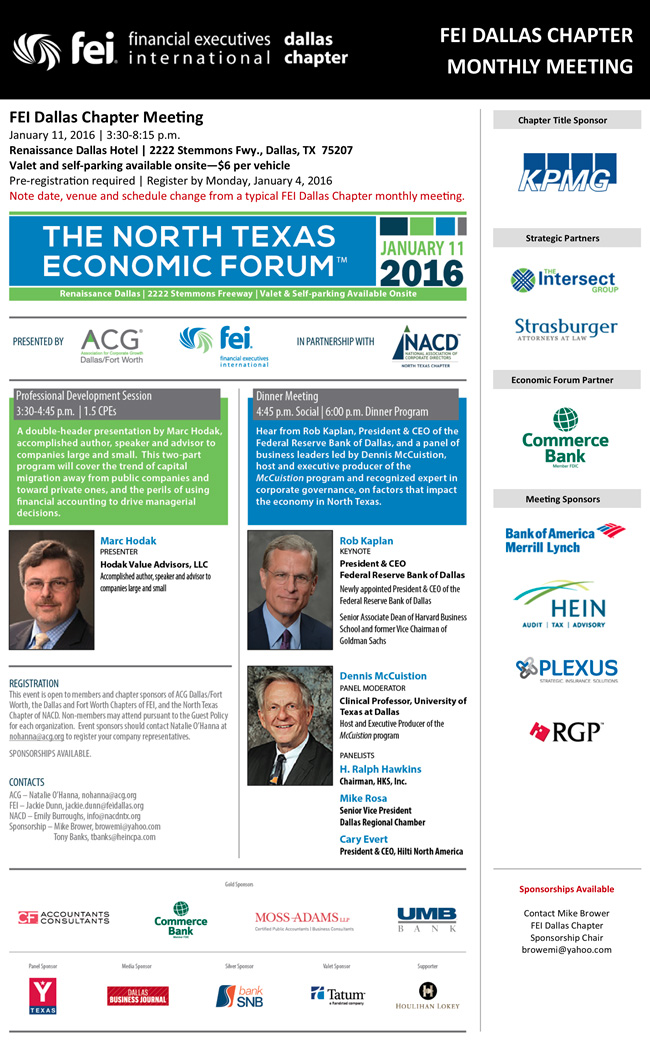Posted by Marc Hodak on October 28, 2016 under Governance, Scandal, Self-promotion | 

This week, I was a talking head on CCTV‘s The Heat with Anand Naidoo. I was brought in to comment on how poorly implemented corporate incentives could lead to the kind of scandals we have seen of late, e.g., Wells Fargo, Mylan, and VW. Being an expert on incentives and corporate scandal, it seemed like a good place for me to contribute. I believe that was also the impression of Richard Bistrong, who is an expert on corporate corruption and compliance.
Unfortunately, the interviewer instead peppered us panelists with questions about the corrupt relationship between business and politics. I was not entirely comfortable about that direction, not because I don’t have well-supported opinions on that topic, but because it just wasn’t what I was prepared to talk about. So, I kept trying to bring it back to corporate incentives, with modest success. (They cut my comment that, hey, I was a governance expert, not a political commentator.) I was ultimately able to make a few key points:
- Perverse incentives were at the root of a number of the scandals
- Those incentives are widespread in corporate America
- It’s getting harder for public companies to monitor internal bad behavior by virtue of their increasing size
My one acknowledgment of the politics was to counter one of the comments by the far-left lobbyist they brought on as a third panelist. He suggested (several times) that Obama’s DOJ and SEC failed to do their job of wholesale jailing of bankers and executives because government prosecutors were involved in some sort of concerted effort to not prosecute criminals, what I called a reverse conspiracy theory.
Being relatively new to TV, I learned that my habit of looking up for a moment as I think about what to say may look a little shifty on camera. Need to keep my focus on the lens.
Posted by Marc Hodak on January 4, 2016 under Governance, Self-promotion | 
I will be explaining why the public company universe has become much more concentrated in the U.S., how private equity is filling the breach on growth and innovation, and what it means for the future of management:

Also, the dangers of using financial accounting for managerial decision making. It’s a double-header.
If you’re a finance type in Dallas next week, stop on by. I promise a good show.
Posted by Marc Hodak on March 30, 2015 under Self-promotion | 

Ethical Systems (ethicalsystems.org) is featuring me, the least distinguished of its collaborators, this month on their site.
Posted by Marc Hodak on February 10, 2014 under Governance, Self-promotion | 

I am excited to announce a new online resource for corporate professionals interested in ethics, governance, and related business issues: EthicalSystems.org. The idea behind Ethical Systems is to provide academic rigor to work on improving the ethical behavior of organizations.
This site is the brainchild of Jonathan Haidt, the brilliant NYU researcher and author of the bestselling “The Righteous Mind.” Jonathan was grappling with the fact that ethical behavior has, thus far, been profoundly resistant to improvement via formal training. So he corralled some world-class researchers* to develop individual pages devoted to specific topics such as Cheating, Corruption, Leadership, and (of course) Corporate Governance.
Take a look at it, and feel free to send comments or ideas to the researchers managing the pages. This is intended to be a collaborative effort not just among academics, but between academia and the businesses this initiative is intended to serve.
* As the person maintaining the Corporate Governance page, I am definitely the least distinguished of this group
Posted by Marc Hodak on April 28, 2010 under Executive compensation, Self-promotion | 
My newest article, published in Directorship, online version here. The comment they chose to highlight in their printed version:
The explosive growth in CEO pay over the last 20 years coincides with a huge shift of power from management to boards.
Which, I believe, pretty much guts the managerial power thesis of rising CEO pay.
Posted by Marc Hodak on February 2, 2010 under Self-promotion | 
As I ramp up my quest for gurudom (sp?), I’ve been giving more and more talks. A young lady came up to me after my last one, and said I reminded her of one of her very favorite professors, a visiting lecturer from GMU (she went to Georgetown). Russ, Alex, et al, you’re on notice. Tyler, you’re still safe, for now. I have nothing to say about Mexican folk art.
Posted by Marc Hodak on under Executive compensation, Self-promotion | 
Bulletin: If you are a public corporation, and you are still using Towers or Mercer as your comp consultant, you are now officially screwed. You are exposing yourself to all manner of legitimate shareholder concerns, and all the attendant publicity.
That is the real message behind Hewitt’s announcement to spin off its executive compensation practice from the rest of its HR consulting business. Hewitt has decided that they don’t want to deal with explaining to increasingly defensive boards how getting $100,000 for advising them on senior management pay is not a conflict with their selling that management $10 million worth of other HR services.
This was probably an easier decision for Hewitt than it would be for Towers or Mercer since Hewitt was not a particularly big player in the executive comp area. All the same, the biggest “in” you can have with a company to whom you are selling your services is a relationship with top management, which executive comp consulting certainly gives you. It’s a difficult relationship to spin off. Hewitt must have determined that, at this point, that relationship was more problematic than it was helpful.
You know Hewitt didn’t make this split out of a lofty concern for governance principles. This is being driven by an emerging consciousness among boards that this is a conflict that no “Chinese walls” can overcome. Boards need excellent, independent compensation advice.
Posted by Marc Hodak on November 22, 2009 under Self-promotion | 
One Silicon Valley firm made a brilliant investment in a couple of great kids. And I can assure you that those kids are totally into getting that firm an obscene return on that capital.
Posted by Marc Hodak on October 26, 2009 under Self-promotion | 
I was interviewed by the BBC last week on a story about Wall Street pay. Matt Frei conducted the interview and, I think, did a great job. You can hear the whole thing here.
My contribution comes in at around the nine minute mark, after the part where Matt Taibi calls our entire financial system a zero-sum game, and just before Katrina vanden Heuvel defends a culture of envy by renaming it a “system of shared prosperity.” Enjoy.
Posted by Marc Hodak on April 21, 2009 under Executive compensation, Self-promotion, Stupid laws | 
The second installment of my Lombard Street article here. Sample:
The clearest evidence of popular envy being the root of these provisions is the clause requiring the board to review “luxury” expenditures—a kind of Optics Committee—for items like office decorations and corporate jets. Clearly, these expenditures are far more material to the press and public than they are to the shareholders. Does it really matter to the shareholders if the company’s most valued employees benefit from nice offices? Sure, there is a crude sense of entitlement that drives an executive to spend a lot on lavish appointments, but such appointments tend to be personalized, which arguably creates a retention benefit, especially in situations where bonuses are otherwise being suppressed. Corporate jets might be a frivolous expense, or they may be a cost effective way to provide efficient and secure transportation to busy executives. The ARRA law leaves it up to the board to make such determinations on behalf of the shareholders, but this is a canard; boards already make these determinations. The real purpose of this clause is use public sentiment to eliminate perks on no firmer grounds than the grade school “chewing gum rule”—if I can’t have some, nobody else can.




